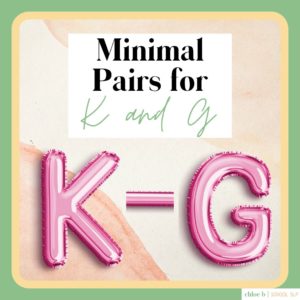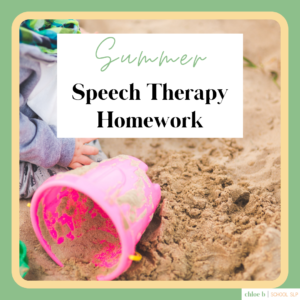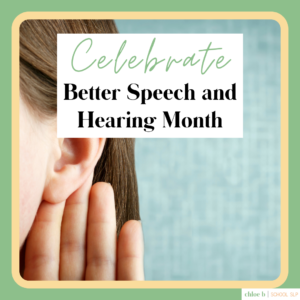Are you learning about IEPs for the first time? Are you wondering – What is an IEP for students? Let’s talk about what an IEP is and what you need to know about it as a parent, student, or educator!

What is an IEP for Students?
What does IEP stand for? Individualized Education Program.
What is an IEP? An Individualized Education Program is a written document that states what services, goals, accommodations, etc. that a child uniquely needs at school.
It’s a plan of action that is created by the child’s parent, general education classroom teacher, and other professionals if needed (such as a special education teacher, speech-language pathologist, occupational therapist, physical therapist, and school examiner.) It is supposed to be reviewed and updated every year.
Re-evaluations to determine if a child continues to be eligible for a disabling condition (such as Specific Learning Disability, Intellectual Disability, Other Health Impairment, Speech Language Impaired, etc.) usually happens on a triennial basis, meaning every three years.
The components of an IEP include:
- Present Levels of Performance/Functioning (including student’s strengths/needs, progress on goals, etc.)
- Services Provided
- Least Restrictive Environment / Placement (if needed, will include documentation explaining why it is necessary for child to not be with gen ed peers 100% of the time)
- Goals and Objectives
- Parent Input documentation
- Extended School Year documentation
- Special Factors – Accommodations / Modifications / Supports
- Assessment (document any testing accommodations)
- Participating Committee Members (and their signatures!)
That’s a lot of components that may not make sense right now. Until you see an IEP for yourself, it’s hard to know what these will look like. Remember, all IEPs should be individualized and therefore unique to the specific child. A teacher should be able to read the document and know exactly what the child does well, what the child needs to work on, and what the child needs to be able to succeed in the classroom.
Now let’s talk about what you need to know about IEPS as a parent, student, or educator!
What Parents Need to Know About IEPs
What is an IEP for students? A document that you have an active role in creating! As a parent of a child with an IEP, you are a crucial part of the IEP development process. You are a co-author of the document, just like educators! You know your child best. So you know what helps your child and what they may need to succeed in the classroom environment.
You can talk about your child’s strengths/weaknesses and get insight into how they are behaving/performing at school. Keep an open mind! Your child likely acts very differently at school!
The most important thing that I can tell you is to make sure you know your rights. The school is required by federal law (Individuals with Disabilities Education Act – IDEA) to give you a booklet containing your rights as a parent. It’s a very lengthy document, but it’s worth a read! For example, as a parent you have the right to request testing. You also have the right to deny putting your child in services or to take them out of services if you want. Knowing your rights can help you be a powerful advocate for your child!
What Students Need to Know About IEPs
If you are a student in middle school or high school, then you also play a big role in the development of your IEP! You should be involved in the process so that you know the services/accommodations you are entitled to, as well as the goals that you need to work on.
My biggest advice for you is know your IEP so that you can advocate for yourself! Just like a child who uses a wheelchair needs to have a ramp in order to access the classroom, you may need things like extended time, preferential seating, or small group testing in order to access learning. If it’s in your IEP, then your teachers need to follow the IEP and provide you your accommodations/support. You can take responsibility for your learning by advocating for what you need to succeed!
What Educators Need to Know About IEPs
If you work with a student who has an IEP, then you need to know what is on it! Even if you are not a general education classroom teacher, many students have accommodations/supports in place no matter where they go in the school such as the cafeteria or the art room. You can promote the health, safety, and learning of students in your care by familiarizing yourself with the components of their IEPs!
My advice to you is to contact the professionals at your school that work under the special education umbrella. This includes special education teachers, para professionals, therapists, etc. Ask to see the IEPs of students that you work with. Ask these professionals if there are important things you should know or do to better support the child when they are in your care.
Also know that you’re rocking it! From us SPED people to you, thank you for caring about these students!

There you have it! Your answer to the question – What is an IEP for students? It’s a complex document that has lots of components. It’s a legally binding contract with the school – saying that they are legally required to do what they say they will do in the IEP! This includes providing services and supports!
If this post didn’t answer all of your questions, then be sure to read this blog post titled “IEP for School – What is Important for Involved Parents to Know?” comment below, or send me a message on Instagram! I’d love to chat with you and help in any way that I can!
-Chloe B | School SLP





